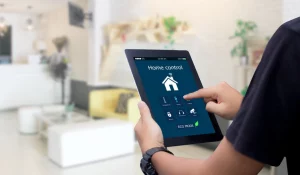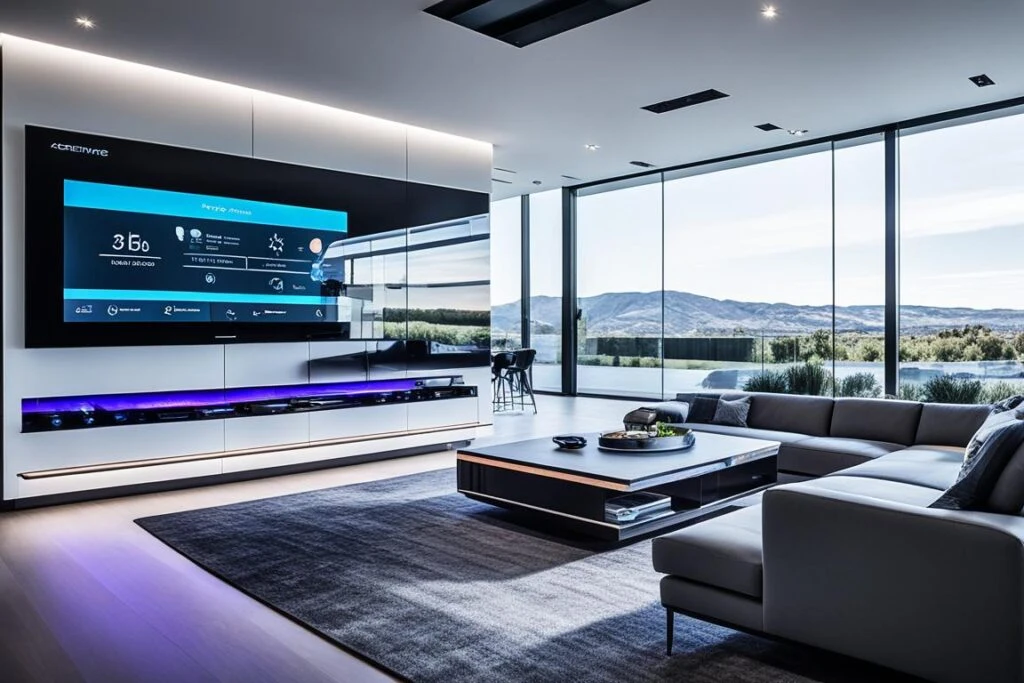As smart home technology evolves, homeowners face a choice DIY vs hiring a contractor for integration. While DIY projects are tempting, ensuring device communication and troubleshooting can be complex. Hiring a contractor guarantees a hassle-free setup, but at what cost? Balancing the pros and cons of each approach is crucial as we navigate smart home innovations.
Key Takeaways
- Evaluate your technical expertise and budget to determine whether DIY or hiring a contractor is the best approach for your smart home project.
- Consider the complexity of your system design and the need for seamless integration of devices, systems, and services.
- Seamless integration requires compatible devices, a robust network infrastructure, and a unified user experience, which may be challenging for DIY enthusiasts.
- Hiring a professional contractor ensures efficient setup, valuable guidance, and saves time and potential headaches, especially for complex system integration.
- Weigh the costs and benefits of DIY versus hiring a contractor, considering factors such as technical support, time commitment, and overall project scope.
Understanding Smart Home Technology
The concept of smart home technology has evolved greatly over the years, transforming the way we live, work, and interact with our living spaces, thereby redefining the notion of home automation and convenience. Smart home innovations integrate devices, systems, and services to create a seamless, connected, and controlled environment, enabling homeowners to experience enhanced comfort, energy efficiency, and security.
DIY Advantages and Challenges
As homeowners increasingly adopt smart home innovations, they must consider the most effective approach to integrating these technologies, which leads to the debate between tackling the project themselves or seeking professional assistance. DIY enthusiasts can save money and enjoy a sense of accomplishment, but may face challenges in ensuring seamless integration and troubleshooting issues.
When to Hire a Professional
Hire a professional when the scope of your smart home project exceeds your technical expertise or requires complex system integration, ensuring a seamless and efficient setup. This is particularly important when integrating multiple devices, ensuring compatibility, and configuring advanced features. A professional contractor can provide valuable guidance and expertise, saving you time and potential DIY vs hiring a contractor headaches.
Seamless Integration Considerations

Several key factors must be considered to achieve seamless integration of smart home devices and systems, including compatibility, network infrastructure, and user interface consistency. DIY enthusiasts and contractors alike must confirm that devices can communicate effectively, are connected to a robust network, and provide a unified user experience to accomplish a truly integrated smart home.
Making an Informed Decision
A thorough evaluation of one’s technical expertise, budget, and project scope is essential for making an informed decision between undertaking a DIY smart home integration project or entrusting it to a professional contractor. Consider the following key factors:
- Complexity of the system design
- Availability of technical support
- Time commitment required for installation and maintenance
- Potential for future scalability
- DIY vs hiring a contractor cost comparisons
Frequently Asked Questions
Can I Mix and Match Different Smart Home Device Brands and Systems?
When integrating smart home devices, compatibility is key; while it’s possible to mix and match brands, ensuring seamless interaction requires careful research and consideration of protocols, hubs, and ecosystems to avoid potential compatibility issues.
How Do I Ensure My Smart Home System Is Secure From Cyber Threats?
To guarantee smart home system security, implement robust passwords, regular software updates, and network segmentation; encrypt data transmission, and install reputable antivirus software to safeguard against cyber threats and potential vulnerabilities.
Will a Smart Home System Increase My Home’s Resale Value?
Yes, a smart home system can increase your home’s resale value by offering potential buyers a modern, convenient, and energy-efficient living experience, making your property more attractive and competitive in the market.
Can I Control My Smart Home Devices When I’m Away From Home?
Yes, smart home devices can be controlled remotely using mobile apps, voice assistants, or web portals, allowing homeowners to monitor and manage their systems from anywhere, ensuring seamless integration and peace of mind while away from home.
Do I Need to Rewire My Entire Home for Smart Home Integration?
Not necessarily; smart home devices often utilize existing wiring, and many systems can integrate with minimal rewiring, but a thorough assessment of your home’s infrastructure is essential to determine the extent of required rewiring.
Conclusion
To sum up, smart home innovations demand thoughtful consideration of integration approaches. While DIY methods offer cost savings and a sense of achievement, they can be restricted by technical know-how and problem-solving capabilities. On the other hand, engaging a professional guarantees smooth integration, particularly for intricate systems, and offers valuable guidance and expertise. Assessing technical know-how, project scope, and budget is pivotal in making an informed choice between DIY and professional integration. Ultimately, a well-thought-out approach guarantees a harmonious and effective smart home experience.
Also Read: Tips for Choosing Tech-Ready Beach Fashion

